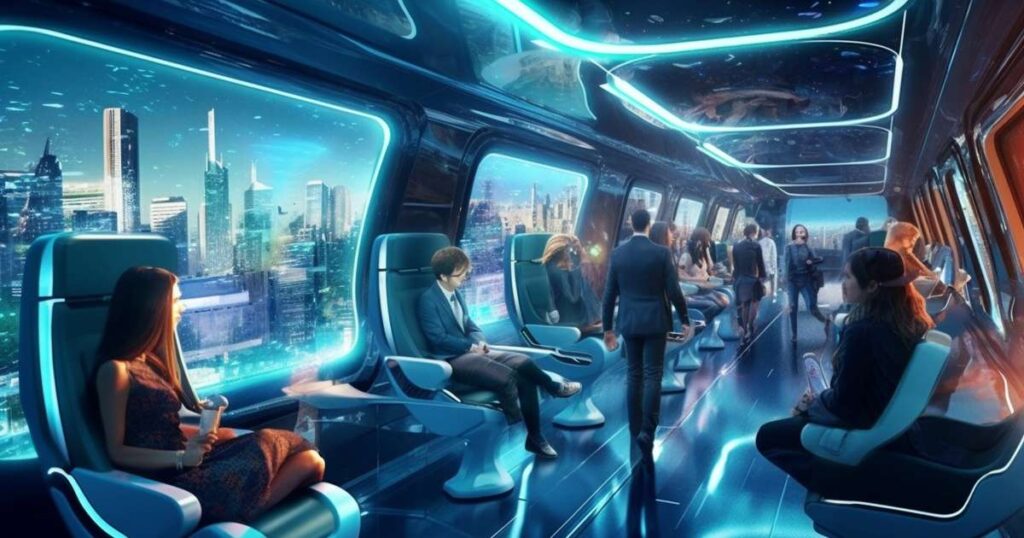The Technological Transformation of Timeshares: Navigating the Impact of Technology

In the realm of travel and leisure, the timeshare industry has been significantly shaped by the sweeping wave of technological advancements. I delve into the intricate web of how technology has revolutionized timeshares, exploring the multifaceted impact it has had on every aspect of this industry.
Enhancing User Experience and Engagement
1. Online Booking Platforms: Streamlined Convenience
Online booking platforms have revolutionized the way travelers secure their timeshare vacations. The traditional process, involving phone calls and paperwork, has been supplanted by seamless digital interfaces. With a few clicks, potential owners and renters can browse a variety of properties, explore amenities, and compare prices. This not only saves time but empowers users to make informed decisions.
2. Virtual Reality (VR) and Augmented Reality (AR): Immersive Previews
VR and AR have injected a dose of virtual magic into the timeshare experience. Prospective owners can now take immersive virtual tours of properties from the comfort of their homes. These technologies allow users to explore rooms, amenities, and even the surrounding locale, providing a vivid preview that transcends traditional static images.
3. Personalization and Data Analytics
The power of data analytics has led to personalized vacation experiences. By analyzing user preferences, travel history, and behavior, timeshare companies can curate tailored recommendations. From suggesting properties aligned with individual interests to proposing nearby attractions, personalization enhances customer satisfaction and fosters loyalty.
Optimizing Operations and Efficiency
1. Management Software: Streamlining Operations
Timeshare properties are complex entities requiring efficient management. Technology has birthed sophisticated software solutions that handle reservations, occupancy tracking, maintenance schedules, and more. These tools optimize operations, reduce manual work, and enhance the overall guest experience.
2. Internet of Things (IoT): Smart Properties
IoT has introduced the concept of smart timeshare properties. Embedded sensors and devices enable remote monitoring of room conditions, energy consumption, and security. Property managers can respond promptly to maintenance needs, ensuring a seamless stay for guests.
3. Digital Communication: Improved Interactions
Communication between timeshare owners and property management has been elevated through digital means. Mobile apps and email notifications provide real-time updates on reservations, check-ins, and property-specific news. This instantaneous interaction fosters transparency and customer satisfaction.

Revolutionizing Marketing Strategies
1. Social Media and Influencer Marketing
Social media platforms have become powerful marketing tools for timeshare properties. Engaging content, eye-catching visuals, and user-generated testimonials showcase the unique experiences offered. Influencer partnerships extend the reach of properties to a wider, more targeted audience.
2. Search Engine Optimization (SEO): Visibility and Reach
With the prevalence of online searches, effective SEO strategies have become imperative. Timeshare properties that prioritize SEO increase their visibility in search engine results, attracting organic traffic and potential buyers. High-quality content, relevant keywords, and user-friendly websites play pivotal roles in this endeavor.
3. Digital Advertising: Targeted Campaigns
Digital advertising allows timeshare properties to precisely target their desired audience. From retargeting previous visitors to reaching demographics with specific interests, digital ads maximize reach and engagement.
Overcoming Challenges and Embracing Opportunities
While technology’s impact on timeshares is undeniably transformative, challenges emerge. Data privacy concerns, cybersecurity threats, and the need for ongoing technological updates demand vigilance. Nevertheless, these challenges open doors to innovate, evolve, and continuously improve the industry’s offerings.
Looking Ahead: Tech-Infused Horizons
The journey of technology’s impact on timeshares is far from over. Emerging technologies like blockchain hold promise for secure transactions and ownership verification. Continued advancements in AI, VR, and IoT will further enhance the guest experience, catering to evolving consumer preferences.
1. Digital Disruption: A Paradigm Shift
The advent of technology has redefined the timeshare landscape, ushering in a new era of convenience, accessibility, and engagement. From the booking process to the vacation experience itself, digital disruption has upended traditional paradigms, reshaping the way timeshare owners and seekers interact with this form of vacation ownership.
2. Online Booking Platforms: Seamless Reservations
Gone are the days of lengthy phone calls and paperwork for booking timeshare vacations. Online booking platforms have emerged as a game-changer, offering users the convenience of browsing and reserving their stays with just a few clicks. These platforms provide comprehensive information about available properties, amenities, and pricing, empowering travelers to make informed decisions.
3. Virtual Tours: Immersive Previews
Visualizing a vacation destination has never been more realistic, thanks to virtual tours. Cutting-edge technology enables potential buyers and renters to explore timeshare properties virtually, offering immersive 360-degree experiences. These virtual tours allow users to inspect rooms, amenities, and surrounding areas, aiding in decision-making before committing to a booking.
4. Enhanced Customer Engagement: Chatbots and AI
Artificial Intelligence (AI) and chatbots have transformed customer engagement within the timeshare industry. Automated chatbots on websites provide instant responses to inquiries, guiding users through the booking process, answering FAQs, and offering personalized recommendations. This real-time interaction enhances customer satisfaction and streamlines the user experience.
5. Personalization and Loyalty Programs
Technology has enabled timeshare companies to tailor experiences to individual preferences. By analyzing user data and preferences, companies can offer personalized vacation recommendations, catering to specific interests, group sizes, and travel patterns. Loyalty programs, powered by data analytics, reward frequent users with exclusive perks and benefits.

6. Mobile Apps: On-the-Go Convenience
Mobile apps have become indispensable companions for timeshare owners. These apps offer features such as reservation management, real-time updates, and even digital room keys, enhancing the vacation experience. Mobile apps provide a seamless connection between owners and properties, allowing for quick access to information and services.
7. Data Analytics: Insights and Predictive Analysis
Data-driven insights have become invaluable tools for the timeshare industry. By analyzing customer behavior, preferences, and booking patterns, companies can make informed decisions regarding property offerings, pricing strategies, and marketing campaigns. Predictive analysis assists in forecasting demand, optimizing inventory, and enhancing the overall business strategy.
8. Sustainability and Energy Efficiency
Technology has also facilitated the integration of sustainability practices within the timeshare industry. Smart technologies, such as energy-efficient lighting and automated climate control, are incorporated into properties to reduce environmental impact and operational costs. These efforts align with the growing demand for eco-conscious travel options.
9. Challenges and Opportunities
While technology has brought transformative benefits to the timeshare industry, it also presents challenges. Cybersecurity concerns, data privacy regulations, and the need for ongoing technological updates pose hurdles. However, these challenges are accompanied by opportunities to innovate, adapt, and enhance the overall customer experience.
10. Future Prospects: Continuous Evolution
As technology continues to evolve, the timeshare industry is poised for further transformation. Virtual reality (VR) and augmented reality (AR) could offer more immersive property previews. Blockchain technology might enhance security and transparency in transactions. The integration of Internet of Things (IoT) devices could lead to more personalized and connected guest experiences.
Conclusion
The impact of technology on the timeshare industry is profound and far-reaching. From revolutionizing booking processes to enhancing customer engagement and sustainability efforts, technology has ushered in an era of convenience, personalization, and innovation. As the industry evolves, embracing new technologies and adapting to changing consumer preferences will be paramount to remaining competitive and delivering exceptional vacation experiences that captivate travelers in the digital age.